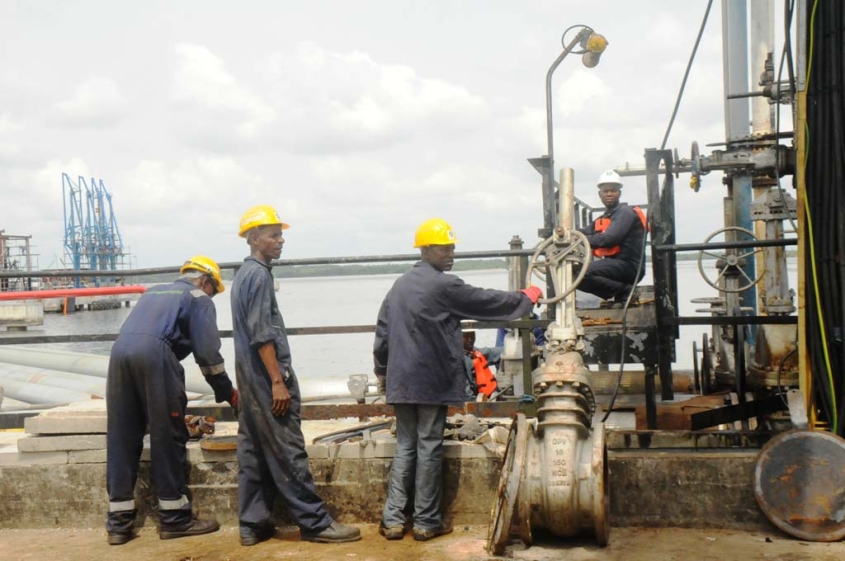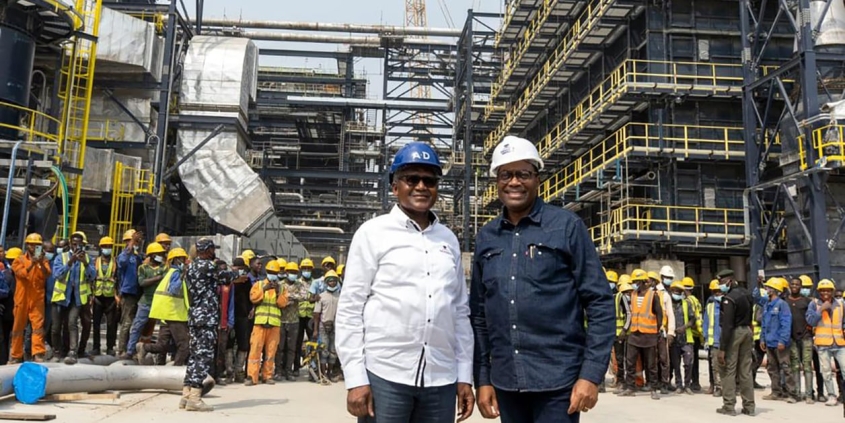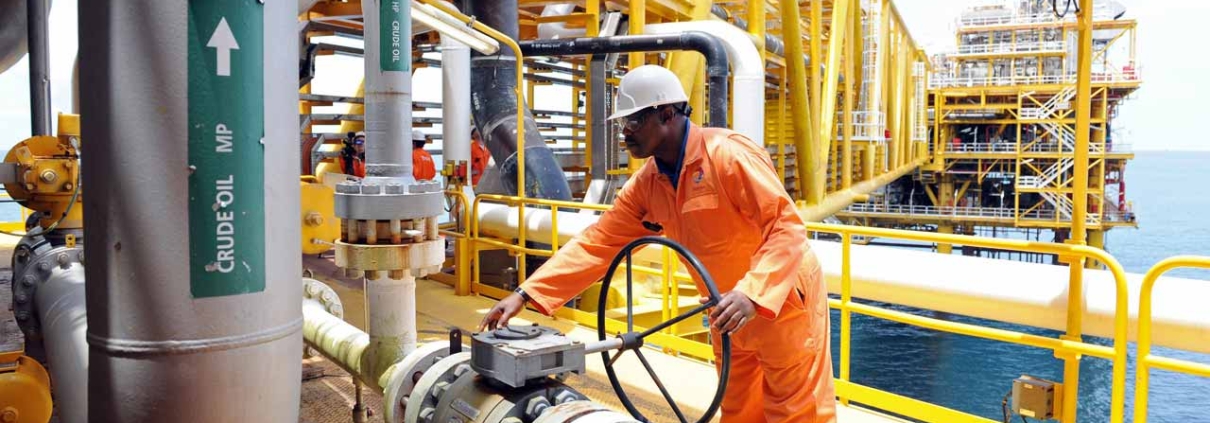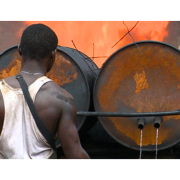Oil Theft, Pipeline Security, Piracy & Elections: Drivers of Instability
Oil Theft, Piracy, Elections Nigeria
Oil Theft and Economic Strain
The Nigerian economy is currently under intense strain, particularly in respect of foreign currency reserves and inflows. At the end of November, Governor Godwin Emefiele of the Central Bank of Nigeria stated that “The official foreign exchange receipt from crude oil sales into our official reserves has dried up steadily from above $3.0 billion monthly in 2014 to an absolute zero dollars today”, The single greatest earner of foreign currency has, for decades, been the oil and gas sector. However, the CBN chief attributed the atrophy of this sector’s ability to generate foreign currency inflows to the relentless and expanding industrialised theft of the country’s crude oil and condensate production.
Since Russia’s invasion of Ukraine, the oil and gas sector represents a huge opportunity for Nigeria, with global supplies having become strained as a result of economic sanctions imposed on Russia. However, Nigeria has been unable to exploit the potential this global crisis represents and its foreign currency reserves continue to dwindle. This is becoming critical as evidenced by the CBN governors comments and a swathe of recent changes in monetary policy relating to foreign currency and banking regulations.
With Europe now unequivocally cut off from the major supply route for Russian gas since the destruction of the Nordstream 1 pipelines, and the failure to commission the Nordstream 2 pipeline through the Baltic, the question is whether Nigeria can ramp up its production and export levels to fill the supply gap in Europe. The sea routes to Europe’s markets from Nigeria are relatively short and this reinforces the merits of trading hydrocarbons with European countries.
Europe’s requirement for LNG supplies is buoyant and Nigeria has capacity to produce 22 million tons per annum (mtpa) from Bonny. The recent commissioning of train 6 has not yet generated the benefits for the economy that were envisaged though. For Nigeria to fail to step into the supply gap and increase LNG exports to Europe could be economically – and politically – damaging.

So can Nigeria exploit the prevailing global economic environment to generate a reversal of fortunes and stabilise the economy? While clearly a potential opportunity exists, Nigeria faces significant challenges, noting that in late September, media sources reported a 13.5% year on year drop in crude oil output. This is very significant at a time when these other massive new market opportunities are opening up.
The following graphic is taken from the OPEC Monthly Oil Market Report and shows the steady year-on-year and month-on-month decline in crude oil output.

Industrialized Theft of Hydrocarbons
Pipeline vandalism and lack of investment in pipeline infrastructure are intrinsically linked to the challenges facing the Nigerian National Petroleum Company (NNPC) and the Federal Ministry of Petroleum Resources. Chronic threats/risks to the security and physical integrity of pipelines, particularly in the Niger Delta, undermine confidence among domestic and foreign investors. The apparent inability of oil companies to secure their pipelines is partly responsible for a wave of divestment by the International Oil Companies, an example of which is the planned major divestment by Shell of its remaining onshore oil production assets. Shell would likely complete the divestment by the time of the elections were it not for a legal challenge to the process centred around a $1.8 billion settlement claim against the operator by host communities in the Niger Delta.
Onshore gas is less problematic from a security perspective due to its volatility and the technical and safety challenges associated with removing it in volume from the closed systems operated by the oil companies. However, Nigeria’s production of associated gas – that which emanates from the same wells and reservoirs as the crude oil production – is entirely dependent upon the ability of the oil companies to continue to pump oil. With pipelines now so heavily attacked by thieves and vandals that, according to some sources, as much as 90% of oil that leaves the wellheads is stolen before it reaches the export terminals, there is a significant risk that oil companies will shut in their fields. This will directly impact on gas production.
Conversely, with oil being far less profitable than gas for the operating companies, it is possible that the oil companies might take a pragmatic position and adopt an elevated tolerance for theft of crude oil as long as the gas continues to flow. The downside of such pragmatism is that operators are responsible for the environmental impact of their operations, and as we have seen in the past, they face litigation even for loss of containment events caused by deliberate interventions by communities, criminal elements and militants. Against such a background, it is understandable that they might decide to divest.

The Nexus with Piracy
On the maritime front, the point is made in shipping media that when the Dangote refinery comes on stream, the facility will likely export refined hydrocarbon products via tankers. There could be fewer tankers exiting the onshore terminals in the Delta and more off Lekki. The cargo will change as well from crude to refined product. That will change the target set available to pirates and maritime armed robbers off the Lekki area and beyond. However, in late November 2022, Martha Pobee, an Assistant Secretary-General in the Department of Political and Peacebuilding Affairs (DPPA) of the UN, warned of a shifting situation in the Gulf of Guinea. She warned that “Pirate groups are adapting to changing dynamics both at sea and in coastal areas,” going on to say; “In this respect, the recent decrease in instances of piracy may in part be attributable to the shift by criminal networks to other forms of maritime and riverine crime, such as oil bunkering and theft, which they likely view as both less risky and more profitable”. She urged regional States and their regional and international partners to accelerate their efforts to establish security in the Gulf of Guinea, referring to the Yaoundé Code of Conduct, signed in June 2013 as the benchmark.
Strategies to Avert a Crisis
The Dangote refinery will also rely on oil from the Delta region to operate. That feedstock will need to be brought in either via pipelines or tankers. If it is via pipeline, the line could be targeted onshore by thieves and vandals. It could also be a target for politically inspired vandalism / sabotage. If the feedstock is coming in via tanker, that increases the costs and also relies on existing output and terminals in the Delta. It is likely that Dangote has been or very soon will be lobbying government to resolve the security dilemma in the Niger Delta Region.
In response to the challenges in the region, we have seen a re-energised focus in government on the seemingly intractable challenge of securing the pipeline network in the Niger Delta. The Federal Government has realised that crude oil production is vital for the economy and security of the infrastructure is critical to success.
Recently, we have seen the award of a Niger Delta-wide contract to the former MEND militant leader, Government Ekpemepulo – aka Tompolo. As at mid-October, the status of this contract remained unclear as a result of strain between Tompolo and other former militant leaders – notably Dokubo Asari. However, by the end of November, pipeline security contracts with Tompolo companies were in place and operational in Delta, Bayelsa and Rivers States.
According to local media reports, Tompolo’s company, Tantita Security Services, has been directly involved in:
- The discovery of a 4km illegal pipeline running from Yorke Flow Station to an offshore loading point. It was just one of 15 illegal connections to the Trans Escravos Pipeline.
- 06 October 2022 – Arrest of an illegal oil bunkering vessel and its crew in the Escravos area.
- 07 October 2022 – Arrest of a 1,500 metric tons capacity crude oil tanker, MT Deinmo, IMO number 7210526 with eight crew members at the Escravos River in Warri Southwest LGA.
- By 10 October, a total of 58 illegal connections had been discovered by Tantita Security Services in Delta and Bayelsa States.
- 15 October, TSS reports the discovery on preceding days of another illegal connection behind a military post in the Ogulagha Community in close proximity to the Forcados Terminal.
Tompolo was keen to demonstrate his company’s capability as a significant sum of money had reportedly been paid at an early stage – before the contract had been signed. Despite numerous claims of ‘discovery’ of oil theft infrastructure and operations, Tompolo and his organisation would almost certainly have had foreknowledge of the many oil theft operations in the Burutu Kingdom and the wider area, including into Bayelsa. Tompolo’s Chief of Security in Tantita Security Services is one Keston Pondi – formerly a senior Delta State MEND commander in Camp 5.
In November, despite growing support among influential actors, Tompolo was still faced with demands for inclusion by security companies and organisations that are closely associated with former militants. In Rivers, Asari Dokubo has been pacified and is now supportive of the contract and High Chief Edwin Clark has called for people in the region to support the contract. However also in Rivers, The Onelga Security Planning and Advisory Committee (OSPAC) demanded inclusion in the Tantita Security Limited surveillance contract, and in Delta State, a speedboat operated by Tompolo’s company local subsidiary was attacked and the engine stolen. This may have been purely incidental, but it cannot be ruled out that a group seeking inclusion was sending Tompolo a message.
The key challenge facing Tompolo is to demonstrate capability, competence and integrity in the delivery of the contract. The problem he faces is that the youths who are directly involved in the operational theft of the hydrocarbons are very small fish in a big pond where some very large fish also swim. The youths are expendable, and any number of arrests will only scratch the surface of the problem that is driven by powerful actors, who drive the operations from afar.
The economic emergency created by the dwindling foreign currency reserves, and the election campaign which is now underway will perhaps focus minds in Abuja and energise the review of options for securing the region’s pipeline infrastructure. Arete sources indicate that at least one of the presidential candidates intends to make the issue of industrialised oil theft a key election issue. That same candidate has reportedly pledged to address the challenge to the country’s prosperity that this illicit industry represents, should he win the Presidency. Any response will likely see the deployment of high-tech surveillance solutions that have not previously been used in the region and it is likely the new technology will be integrated with existing command and control structures that will see Tompolo’s companies responding to highly accurate but perishable intelligence. Thus, it is expected that, given time, Tompolo’s companies will be seen to be an effective response to the oil theft problem.
Conclusion
We should expect the issues discussed in this analysis to become hot topics in the election campaign and we will continue to monitor and add our analysis in the coming months. The scale of the theft of crude oil is such that the problem will not be fixed quickly or without major pushback from powerful vested interests. The entire Niger Delta region faces a period of strategic change, and the ending of the industrialised theft of hydrocarbons will not come about without massive investment in the region. The question is, where will the funding be generated for such a project?




